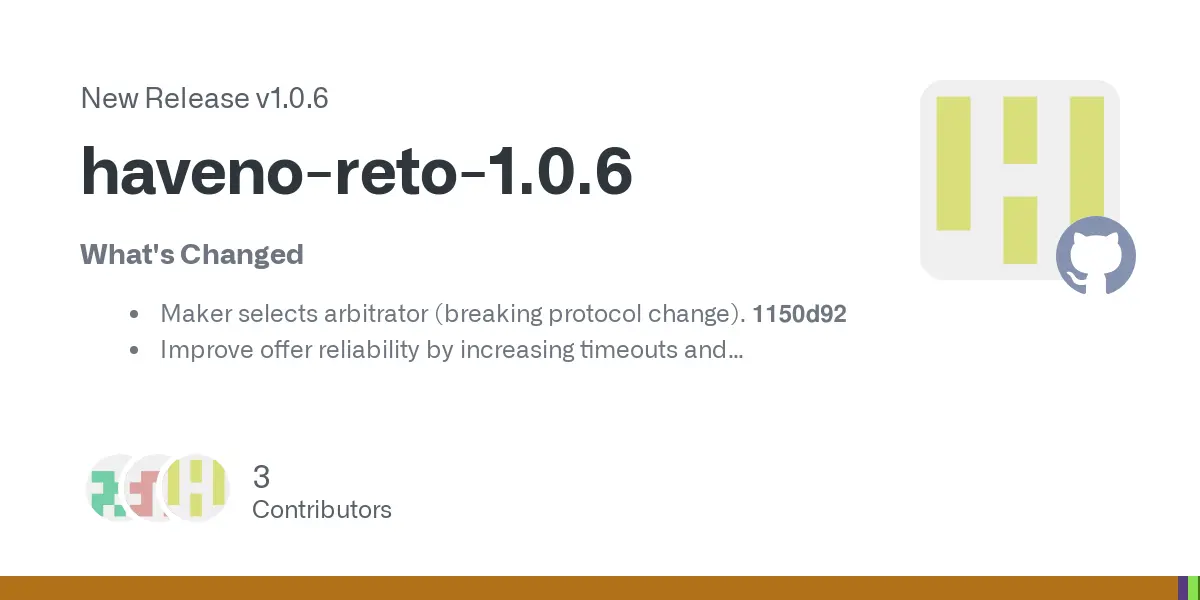Now without the need for a github account!
when/why was one ever required?
Initially we used github actions to build the installers and have people download them from their, which requires a github account.
based, next step set up your own apt repository for easier upgrades for linux users and it’s going to be top notch ;)
Not objecting or disagreeing, but could we get more than a one-line explanation for breaking protocol changes? maker selects arbitrator (breaking change) does not inspire a whole lot of confidence. Is there a discussion somewhere I can read that spells out the options and why this one was selected?
It’s a change to how trades are done in the background.
Before, the taker client would select the arbitrator, now this is done by the maker. Before this change, a rouge arbitrator with a modified client could have taken all open trades, assign themself to them and pay them out to themself.
After this change, the maker-side selects the arbitrator, and a rouge one would lose a bunch of bond in the trades they weren’t assigned to. The more arbitrators there are, the less likely it gets that one of them could go rouge and make a profit. For example: at 20 arbitrators, a rouge arbitrator would be expected to lose the 15% bond for 19 out of 20 trades. That is on average nearly 3 times higher than the expected return of the 1 trade they can actually drain.
This is why we will ask many trusted community members to become arbitrators once the software has become more stable and there aren’t multiple updates per month anymore.
because this could’ve allow an arbitrator to exit scam whole network, now they can only scam the trades that are assigned by the maker or all arbitrators have to agree.
If anybodys on Arch, if you place this PKGBUILD into the haveno extracted directory and run “makepkg -si” will convert the rpm to arch and install it.
pkgname=haveno pkgver=1.0.6 pkgrel=1 pkgdesc="Monero DEX" arch=('x86_64') depends=("bash" "java-runtime>=21") optdepends=() source=('haveno-1.0.6-1.x86_64.rpm') sha256sums=('SKIP') package() { find $srcdir/ -mindepth 1 -maxdepth 1 -type d | xargs cp -r -t "$pkgdir" }




